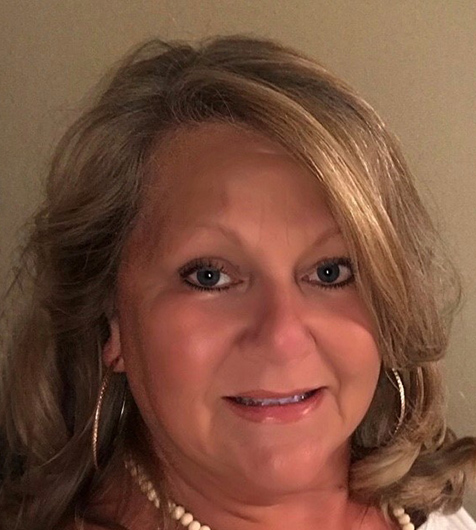How to Get Through COVID-19 Without Depleting Your Savings
Due to the effects of the COVID-19 pandemic, many families are struggling with both health and financial implications. High unemployment and stalled economic activity have left millions in a worse financial position than at the start of 2020.
If you’ve experienced a financial setback because of the pandemic, not all is lost. Here are some steps to help you get through the pandemic without depleting your savings.
The Value of an Emergency Fund
When you get your paycheck, it’s important to pay yourself first. This means funneling part of your pay into a separate savings account and earmarking it for emergencies. The goal is to have six months of living expenses (not salary) saved up. An emergency fund gives you flexibility and peace of mind in case of job or income loss.
The best time to start an emergency fund is before you need to use it. Start saving today so you have money set aside for a rainy day.
How to Handle Income Loss
If you’ve lost your job or had your hours cut because of COVID-19, apply for financial help. Your first stop should be the unemployment office. Even if you didn’t qualify for benefits before, you may now. Earlier this year, Congress passed the CARES Act, a $2 trillion COVID-19 aid package that expanded unemployment benefits to freelancers and contractors.
Loss of health benefits can be especially jarring during a pandemic. Check with your former employer about extending your health coverage through COBRA. If the premiums are too expensive, you can apply for health coverage through HealthCare.gov or your state’s health insurance marketplace since job loss is a qualifying event.
Even a temporary loss in income can help you qualify for food assistance. Supplemental Nutrition Assistance Program (SNAP) and Special Supplemental Nutrition Program for Women, Infants and Children (WIC) are two federally funded programs that help people feed their families healthy foods. Find your state’s local program office here.
Cut Your Expenses
Go through all of your expenses and find areas to cut back, such as dining out or canceling products or services you don’t use. Call to negotiate bills like your rent or mortgage, electric, gas and insurance.
Make a meal plan and grocery list based on current sales. Stick to your shopping list and avoid impulse buys. Don’t browse online stores for entertainment, and avoid spending money on anything that’s not absolutely necessary.
Make a Budget
Even if you’ve never had a budget before, it’s never too late to start. A budget is simply a tool to help you direct where your money is going each month. Review your current expenses over the last three to six months. Create a list of spending categories and decide how much you can spend in each area. Eliminate anything that’s not necessary, such as entertainment, subscriptions, etc.
Before touching your savings, figure out ways to make more cash. Consider selling unwanted items around the house, holding a garage sale or adding other sources of income, such as mowing lawns or food delivery, to help bridge the gap.
Avoid Dipping Into Savings
While it’s nice to have savings as a backup, avoid pulling money from your account. Look for ways to make cash and exhaust all other options before pulling money from your emergency fund.
If you have to use your savings, look at the gap between how much money you need every month and how much you have coming in. Take out enough to cover you for three or four months at a time instead of pulling out as needed. For example, if you need $150 from savings every month, pull out $450 every three months and budget out $150 per month. This will help you avoid excess fees, which can pile up if you pull out money from savings too often.
Think Twice Before Using Credit Cards or Payday Lenders
Credit cards can be a black hole that draw you in and make it harder to recover from financial hardship. You can get hit with high monthly fees and high interest rates, making it more difficult to dig yourself out from under the debt.
Whatever you do, avoid payday lenders. High fees and astronomical interest rates make payday lenders a particularly bad option for getting extra cash.
Don’t Touch Retirement Accounts
One of the worst things you can do when faced with a financial hardship is to dip into your retirement accounts. Never pull money from your 401K or other retirement savings. If you do, you will end up paying steep fees and lose thousands in retirement earnings. Often, you don’t have enough time to make up the losses.
Talk to Your Banker
If you need quick access to cash and don’t have sufficient savings, talk to your banker about your options. You may qualify for a low-interest-rate loan with better terms than a credit card or payday lender. Some lenders are also offering deferred payments and other loan options to help borrowers affected by COVID-19.
At Southside Bank, we’re committed to taking the time to understand your needs and supporting you however we can. If you would like to speak with a banker near you, please contact us.
Most Recent
Veterans Day Story: Brynner Nkala
As we celebrate Veterans Day at Southside Bank, we are reminded of the courage and sacrifice of the men and...
Fraud Fighters: David
David, a young entrepreneur, scrolled through his social media feed when an ad popped up. It advertised another round of...
Tax Planning Tips to Optimize Your Returns
As the year draws to a close, now is the perfect time to make strategic decisions that can positively impact...
Southside Bank Promotes Charles Colley to Austin Market President
Southside Bank is pleased to announce the promotion of Charles Colley to Austin Market President. In his new role, Colley...

